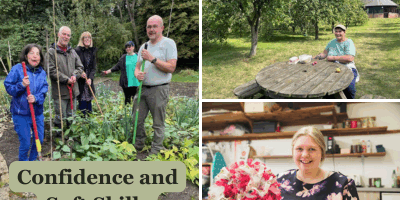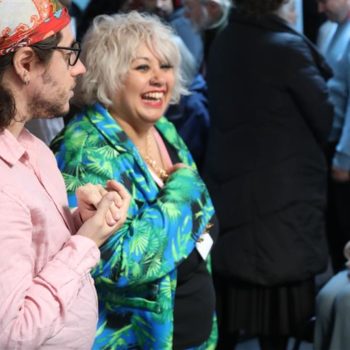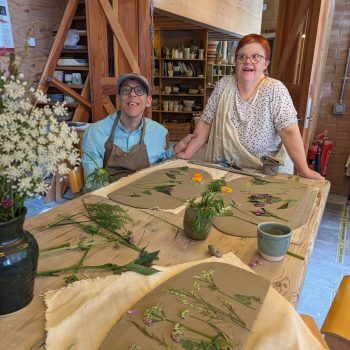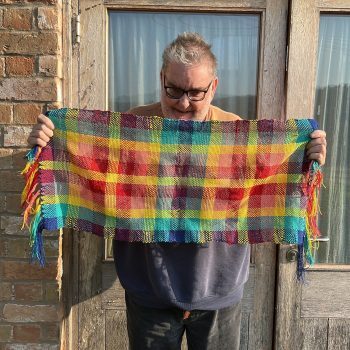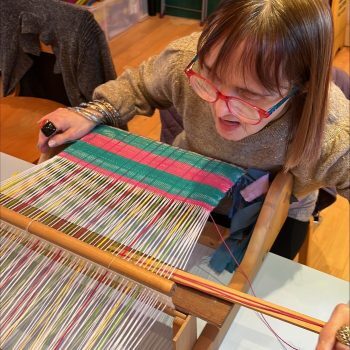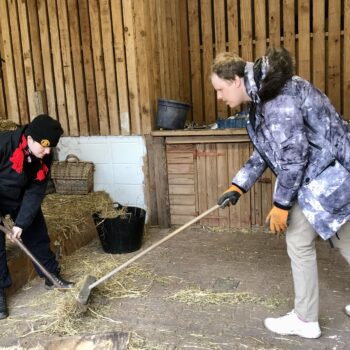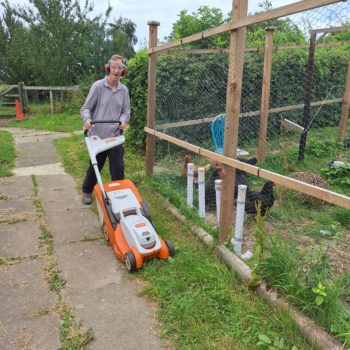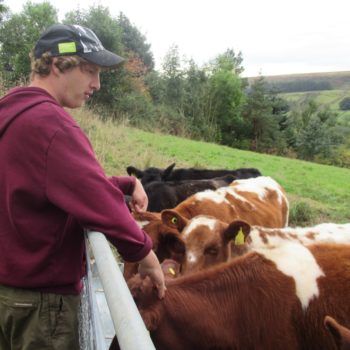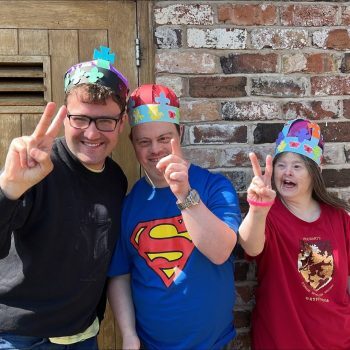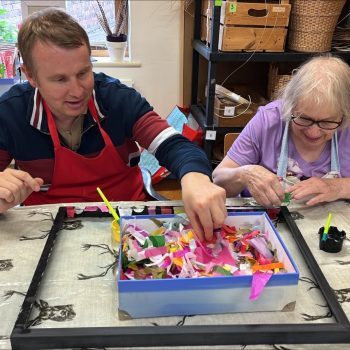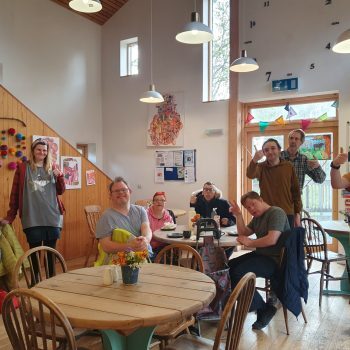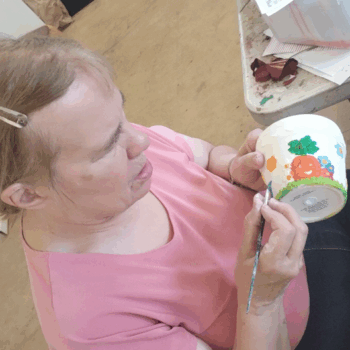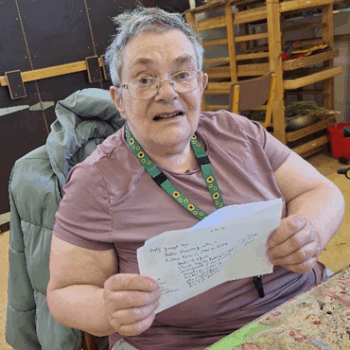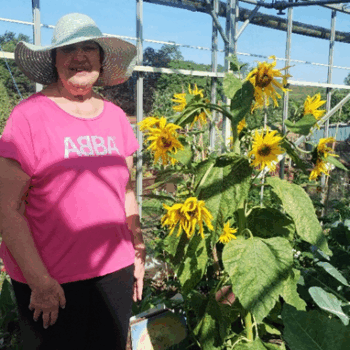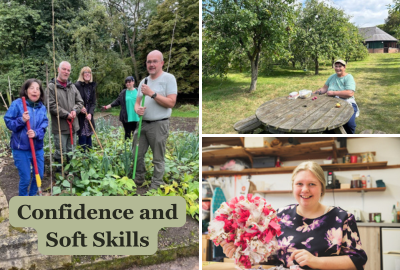More than the finished product
When you walk into one of Camphill Village Trust’s workshops or cafés, it’s easy to notice the things being made – a handmade vase, a tray of freshly brewed coffees, or a stack of beautifully designed Christmas cards. But according to Kat Collins, Operations Lead for our Nature-Based Therapies and Skills Programmes, those items aren’t really the end goal.
“The vase, the coffee, the card – they’re not the finished product,” says Kat. “The real outcomes are the soft skills and confidence that people gain along the way.”
- Kat Collins
Beyond the task at hand
Every activity within our programmes – whether it’s working on the social farm, creating artwork, or serving a customer in the café – is an opportunity to build valuable life skills. Time management, basic math, fine motor skills, patience, problem-solving, and communication all grow naturally through the process of completing a task.
Just as importantly, people learn how to manage themselves: setting goals, following tasks through to completion, and finding ways to handle different situations. “That journey towards independence is what it’s really about,” explains Kat.
Nature as a teacher
What makes these programmes unique is the central role of nature. “The brilliant thing about nature is that it’s bigger than any of us,” Kat reflects. “There’s something about being outside – the scale of nature – that makes people feel freer and more able than in the constraints of a building or classroom.”
Nature becomes a space that adapts to each person’s needs. For one, it might be sitting quietly by the pond; for another, it’s digging hard to release energy and frustration. Sometimes it’s simply noticing the rain on a window or the sound of the wind. These moments provide grounding, confidence, and inspiration.
“We never force it,” Kat says. “It’s about allowing people to connect with nature in their own way, using it for whatever they need – comfort, expression, or reassurance.”
Ownership and social connection
The programmes also give people a chance to take ownership. Whether it’s tending the social farm, serving in the café, or producing artwork, participants see themselves as contributors. A bowl of soup made from “Jonathan’s carrots,” as Kat describes, is more than just food – it’s a marker of involvement, pride, and connection.
This sense of ownership is paired with social interaction. Workshops and activities are safe spaces where people can build friendships, work as part of a team, and develop confidence in social settings – all skills that transfer into everyday life and, for some, open pathways towards employment.
A person-centred journey
While the Trust sets outcomes at the end of each season, Kat is clear that the focus remains person-centred. “We always have to look at how the task is helping someone grow overall,” she explains. “It’s about making sure people are supported to find their own way – and that they always have the opportunity to take part, even if they don’t choose it straight away.”
At its heart, the Nature-Based Therapies and Skills Programme is not about the vase, the coffee, or the card – but about the people who make them, and the skills, confidence, and independence they gain along the way.
What are our Nature-Based Therapies and Skills Programmes?
Our programmes bring together meaningful activities rooted in nature, creativity, and community. The supported activities are:
- 🌱 Growing and horticulture – from seed to harvest, learning to care for plants and food crops.
- 🐑 Animal care and husbandry – developing responsibility and empathy through caring for farm animals.
- 🛍️ Retail and customer service – gaining practical skills through working in our cafés and shops.
- 🎨 Creative arts for wellbeing – all things performance inspired by the natural world, including music, drama, and seasonal celebrations.
- 🌳 Countryside management – looking after woodlands and natural habitats.
- 🧵 Arts and crafts – building fine motor skills, patience, and creativity through hands-on art projects.
- 🍲 Catering and food preparation – learning to cook, bake, and prepare food.
Each activity is a steppingstone towards confidence, independence, and opportunities beyond our communities.
Find out more about our Nature-Based Therapies and Skills Programmes and how they create opportunities for confidence, wellbeing, and independence.

